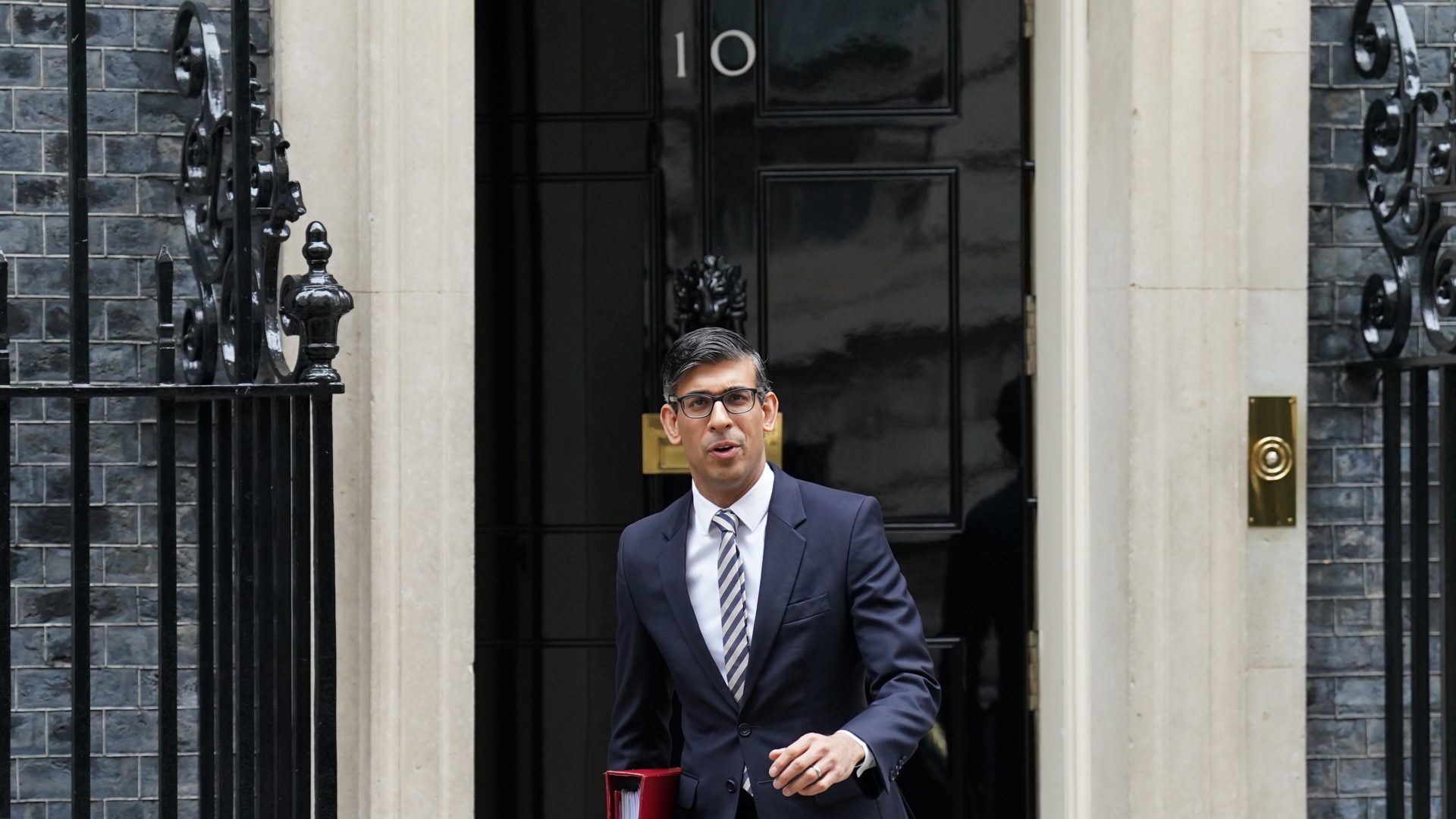There is little if any attempt to disguise the cosy relationship between Infosys and Downing Street in the Indian IT conglomerate’s latest annual report. Indeed, it boasts of how “the British prime minister” had provided “in-person endorsements of Infosys’ contribution to local technology hiring, skilling and related capital investments by government leaders at… national and local levels”.
What form this “in-person endorsement” took or the identity of the prime minister who gave it isn’t spelled out, but the fact the accounts cover the year ending March 31 2022 suggest it wasn’t Rishi Sunak – the son-in-law of Infosys co-founder NR Narayana Murthy – but Boris Johnson.
There are parts of the report where Infosys appears to regard the UK as a wholly-owned subsidiary. Of its work in the UK during the period under review, the company boasts that it handled the “launch of the “Government Tech Insider before the UK parliament, a document to guide UK policy development on the regulation of emerging technologies (in partnership with the Infosys Knowledge Institute)”.
The report also notes how the firm bagged a seat on “the UK trade minister’s Technology and Telecoms Trade Advisory Group”, made an “active contribution” to the standards committee of the Department for Business, Innovation and Skills, and “advocated” for immigration legislation and regulation that were “in the best interests of the mobility of IT services industry workers in key markets such as the UK”.
The prime minister’s wife, Akshata Murty, will receive nearly £6.7m in dividend payments from her shares in her family’s firm this summer. It will bring her earnings from Infosys to £13m for this financial year. Murty had used non-dom tax status to save money on her tax bill in April last year, while her husband was chancellor and the couple lived in Downing Street.
Lately kicked out of the Tory Party for good for equating the use of Covid vaccines to the Holocaust, Andrew Bridgen has now found that his family firm AB Produce plc – purveyors of vegetables and potatoes – also wants nothing whatsoever to do with him.The Leicester-based business that once provided him with a car, a £1.5m home and other benefits, has reported that it has ended all “benefits” to him.
Bridgen is down £818,400, after an acrimonious legal battle with AB Produce, a company he once ran and in which he retains a significant shareholding. Last March, a high court judge found he had “lied”, given “dishonest answers” and been “evasive and argumentative” during the proceedings. Yet perhaps as this was a civil and not criminal matter, there has been no legal comeback for Bridgen – a fact that, I am informed, grates with his old party’s grandee Lord Archer, who was, of course, imprisoned for lying under oath.
Bridgen’s Serbian opera singer wife Nevena is furious at his expulsion, calling it “political persecution” and adding “under Rishi Sunak’s regime we are transported in (sic) Orwell’s 1984”. Nevena insisted on Twitter that her husband was not antisemitic as he’d been “invited by the Jewish community to speak at the Westminster singsong”, later confirming she’d meant “synagogue”.
John Simpson, the BBC’s distinguished world affairs editor, appears not to have got the memo that its journalists shouldn’t say anything that could be construed as political. “Following Richard Sharp’s resignation as BBC chairman, it’s likely there’ll be more support for the proposal that the chairman should be nominated by an independent committee and not by the government,” Simpson tweeted. “Polls always show people want governments to keep their hands off the BBC.”
Andrew Marr, who used to complain he couldn’t say what he was thinking while in the BBC’s employ, was happy, meanwhile, to launch a no-holds-barred attack on the government at the Cambridge Literary Festival. He likened it to “a prone patient recuperating in some convalescent home, having been weakened by the deranged politics of recent times”.
In Whitehall, if not yet in Westminster, there is a feeling it isn’t just Sharp’s job that should be decided independently. The chairmanship of Ofcom also needs to be taken out of the hands of the prime minister of the day after Boris Johnson’s risible attempts to impose the Daily Mail grandee Paul Dacre on the watchdog. The appointment of Tory party life peer and Jerry Springer lookalike Michael Grade – scarcely an expert on telecommunications or social media – wasn’t generally seen as any more of a serious appointment than Dacre’s would have been.
Old Fleet Street etiquette dictated that editors should never use their newspapers to make personal criticisms of other editors. The Daily Mail therefore raised eyebrows when, in an editorial, it noted that Baroness Patience Wheatcroft – a contender to replace Richard Sharp as BBC chair – had been a “humdrum” editor of the Sunday Telegraph. As it happens, Wheatcroft – now a contributor to the New European – deserves credit for steadying the paper after its disastrous spell under Sarah Sands, and she was the only editor to have left the title in recent years of her own accord, as she wasn’t willing to preside over its “integration” with its daily stablemate.
I noted not so long ago that Dacre was bitter about the way Wheatcroft and Charles Moore – a former Daily and Sunday Telegraph editor – had both been ennobled when he hadn’t. A peerage – or more likely a knighthood – is now, incidentally, expected to come Sharp’s way, presumably for financial services to Boris Johnson. Another contender for Sharp’s job is Rupert Gavin, who is letting it be known he is up for the chairmanship.
The long Charity Commission investigation into the affairs of Carrie Johnson’s employer Damian Aspinall may be drawing to a close. An update from Companies House suggests Aspinall may have thought twice about his living arrangements, with the filing of “a change of director’s details”. A Companies House spokesperson says this could be indicative of a “change of address”. Aspinall had been living at the 30-room Howletts mansion in Kent, which, according to accounts published by his wildlife charity the Aspinall Foundation, he had been renting for £2,500 a month in 2019 and £10,000 a month the following year.
Aspinall and his estranged wife Victoria have conducted hundreds of thousands of pounds worth of business with the charity – including the renting of Howlett’s from the Aspinall Foundation. Carrie Johnson is still apparently doing PR for Aspinall, even if she has not to my knowledge ever spoken to a journalist about her boss’s current PR predicament.




